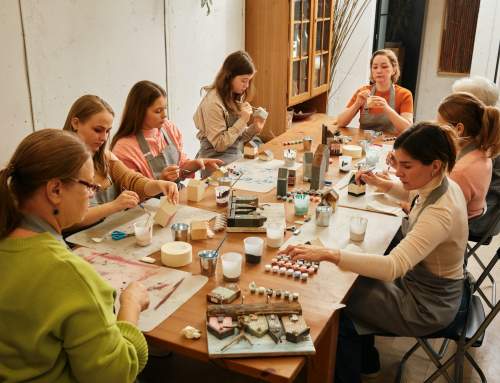It’s easy to dismiss personal branding as a product of “Generation Me” but if you’ve ever secretly Googled yourself then chances are, you’re interested in and aware of your personal brand.
The convergence of a competitive job market and the dominance of digital platforms (where almost everyone can be searched and seen) has brought self-marketing and personal branding to the forefront.
Your personal brand can open up more career opportunities therefore, it’s something you need to consider as part of your career strategy.
What is a personal brand?
A personal brand is a trade mark of your most distinctive values and characteristics, as observed and assessed by others.
Everyone has one. Consciously or not, how you talk, think, interact with others, execute your work and even how you dress are all part of your personal brand. If you listen carefully you will hear people make brand statements about others all the time. For instance, have you ever people say things like:
- “Ohhh she is great at solving problems”,
- “Ring (name) because he is great at …”
- “(name) is so good at talking in front of an audience, she just oozes charisma”
- “That’s the person we need working here”
Personal branding strategist, Dr Dra Natalia Wiechowski, says that personal branding is about managing other’s impressions of you.
“If you position yourself in a great, in a positive and impressive way, people will choose you. And not the other individual. Because they know what they will get when they work with you and what you stand for,” said Dra Natalia Wiechowski.
Why is personal branding important to my career?
Understanding and managing your personal brand can help you stand out from the crowd. It gives you a point of difference you can use to engage with and connect to your network.
If you’re no Kim Kardashian, don’t worry, your personal brand isn’t superficially just about looks (in fact looks has very little to do with it). Appropriately communicating your personal brand can help you to:
- Build trustworthy relationships
- Highlight your strengths and expertise
- Gain positive exposure
- Be suitably remunerated
- Achieve promotions
- Be noticed by recruiters
- Create new and valuable connections
Through developing self-awareness and remaining true to who you are can build a credible brand. Best-selling author, Ben Angel, says it’s about playing to your strengths.
“It is about taking key characteristics and turning on the volume on them, so you have the ability to truly captivate an audience,” said Mr Angel.
How do I create a personal brand?
To begin, you need to look closely at who you are and how to utilise your features to make yourself remarkable.
1. Discover Your Authentic Self
Take a quiet moment to reflect on who you are and what do you stand for. Finding the answers can be daunting, so try breaking them down into these aspects:
- Values:
- What are the core values that describe you best?
- What standards and behaviours do you consider correct in the way you live and work?
- One of the activities I set my clients is to have them ask five friends:
- What are the values that best describe me?
- What are the things that make us such good friends?
Both of these questions will reveal your values as understood by others.
- Personality:
- What are the main features of your personality that have a positive influence in the way you interact with others? Are you empathic? Are you the “go to” person for relationship problems? Are you funny? A good listener?
- Again, a good exercise is to ask five friends to describe your personality traits.
- Your passions:
- What motivates you?
- What are your interests?
- What gets you angry?
- What brings a smile to your face?
- Interpersonal skills:
- How do you communicate and interact with others? Think of the way you express yourself, the wording you use and your body language. These two things are crucial to a positive personal brand.
- How can these characteristics enhance your personal branding?
- Your image:
- What does your personal presentation, clothing, hairstyle and facial hair say about you? Remember first impressions are cast in the first seven seconds of meeting someone so your look is important.
Reflect on your career achievements:
- Experience and studies:
- What experiences have impacted your career and are worth of being emphasised?
- What have you studied and how can be a stand out in the achievement of your career goals?
- Strengths:
- What are you good at?
- What are your specialities?
- What do others say you are good at?
In my article, How to Find a Great Career, I talk about how personality profiling tools like Harrison Assessments, can help you gain an objective understanding of your personality and strengths. You can also talk to your manager and colleagues to get an outsider’s perspective, or ask a career coach.
2. Analyse your goals
Take a moment to think what you want to achieve, where would you like to see yourself in the future, and what connections you need to make to get there.
Consider:
- What are employers looking for?
- How can I gain their attention (in a good way)?
- How can I connect with potential employers?
- How can my network help me connect with potential employers?
Social media can be a good tool for this. Make the effort to post positive things regularly on your social media.
Otherwise, take time to read, like and comment on content published by people and companies you want to work with.
Your personal branding must be a vehicle to attract attention from the right people and help you achieve your goals.
3. Make Your Own Statements
Your personal brand is more than just a visual statement – the words you use to describe yourself make a significant contribution. Writing out your personal brand statements will help you to define and refine what you want to say about yourself and align your personal brand with your goals. As a starting point:
- Re-visit the points you raised in step 1, and decide what you want to say about your professional self in public.
- Consider your purpose (why have you chosen your career) and your elevator pitch (how your work and your approach make you stand out from the crowd).
- Draft these ideas into short statements for your CV and LinkedIn profile.
4. Have a Good Look
It’s also a good idea to audit your visual brand. For example, when was the last time you updated your profile picture on LinkedIn? Is it a good quality shot that presents you in the best light? If not, consider having a new photo taken.
I know one professional who wears a red dress every time she is asked to speak publicly. Red is one of her brand colours and the red dress really makes her stand out on social media in the photos. In fact, wearing a red dress has become her signature.
Mind your personal brand’s digital presence
A lot of networking and first impressions are now made online. Most companies use search engines and social media tools to seek and screen future employees.
According to Open Colleges Australia, digital platforms have opened up a world of possibilities for personal branding and self-promotion.
“The current rise of social media, management of a personal brand is easier. You can choose to utilise Facebook, Twitter, personal blogs and LinkedIn to develop and maintain your own brand,” says Open College Australia
You can strategically create and share content related to your expertise, broaden your network, design and edit your profiles and be visible to prospective employers.
Ensuring you share only appropriate content on social media is crucial to protecting your own brand and maintaining your online reputation. Almost everyone has an online footprint – make sure yours is a desirable one!
How do I evaluate my personal brand?
It’s important to keep an eye on how well you are communicating your personal brand and if it is giving you results.
Some ways of evaluating it are:
- Type your name into Google and see what comes up. If it’s within your control, make sure you get rid of anything that appears unprofessional. To help you monitor your brand, you can set up a Google Alert, which means you’ll be emailed every time you receive a mention (hint: if you have a popular name like John Smith, make sure you set up your Google Alert for local mentions or your inbox will be bombarded with alerts!)
- Keep track of any new connections you make and how they could lead to new opportunities.
- Ask your manager and colleagues how they perceive your brand at formal and informal reviews.
What if I don’t like self-promotion?
It’s logical to think your work stands for itself, and it may well, but in such a competitive work environment it’s important to be aware of your strengths and develop a well-defined brand that helps you to project your uniqueness.
Self-promotion and personal branding don’t have to be aggressive, over the top and in your face. You can apply more subtle strategies to suit your own style.
Creating a personal brand requires an accurate self-assessment and working with a professional coach who provides objective feedback can help you tremendously. If you are interested in creating your personal brand, I can help you. Let’s work together to create a clear and consistent personal brand strategy that will be your platform to be seen and recognised.
Go to my contact icon in LinkedIn to BOOK your free personal brand conversation – LinkedIn – Rob Cugno
Watch:
The One Thing You Really Need to Know About Personal Branding
https://www.youtube.com/watch?v=JryQOkW7pZk
The personal brand of you
https://www.youtube.com/watch?v=rGbsb6aXbzc
Read:
The art of self-marketing
https://www.seek.com.au/career-advice/the-art-of-self-marketing
The best way to measure your brand success
Personal branding 101
https://knowing.swinburne.edu.au/post/166801894179/personal-branding-101
The complete guide to personal branding
https://www.opencolleges.edu.au/careers/personal-branding-guide







